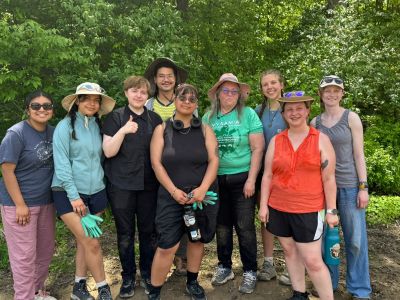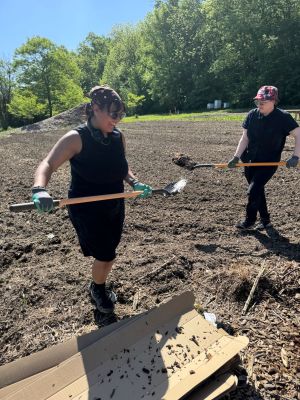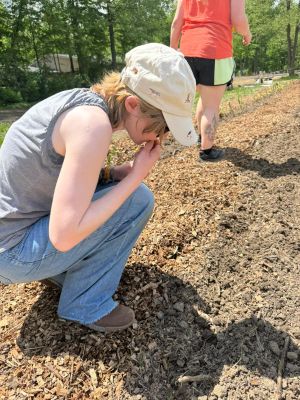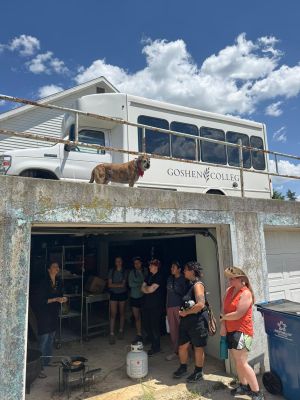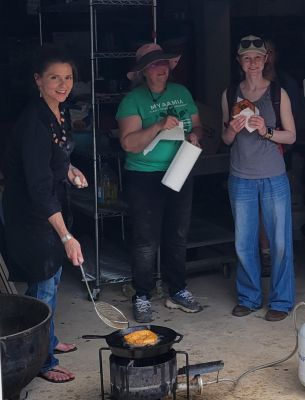By Jill Yoder, junior environmental & marine science major
On May 16, a warm and sunny day, our class returned to Peehkahkionki, “the beautiful place,” where we had visited about two weeks earlier. This time, we met Dani Tippmann, who is the Foods Program Director for the Miami Tribe of Oklahoma. Dani is working towards a goal of food self-sufficiency for the tribe, which is done in part through a community garden where traditional crops are grown. We had the opportunity to volunteer in the garden as we learned from Dani about its significance to the Miami Tribe.
Our first task was “weeding” around raised beds. Dani explained that she doesn’t think of these unintentionally grown plants as “weeds.” Different plants can serve different roles, so none of them are viewed as unwanted pests. The ones we removed are to be composted so they can return to the soil and help the garden grow, rather than hinder it.
Next, we created paths around the beds by laying down cardboard and covering it in wood chips. In order to keep costs low and techniques accessible to those working in and learning from the garden, the resources used tend to be readily available like cardboard, and free like the wood chips, which were given by the local electric company.
In the afternoon we moved on to planting, beginning with a line of transplanted onions along the edge of the garden. Deer aren’t fond of the smell of onions, so they act as a natural way to keep deer away from the plants they are more inclined to eat.
We ended our time at Peehkahkionki with “the best fry bread in the world” prepared for us by Claudia Hedeen. It’s the only fry bread I’ve had as of yet so I can’t say for sure whether it really is the best, but I can believe it!





